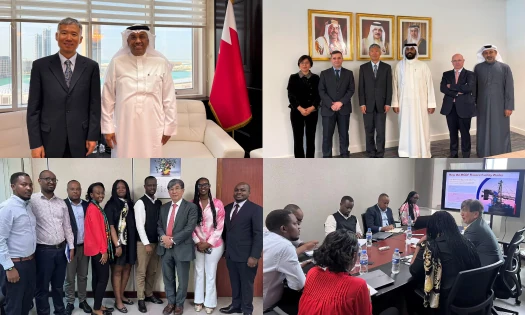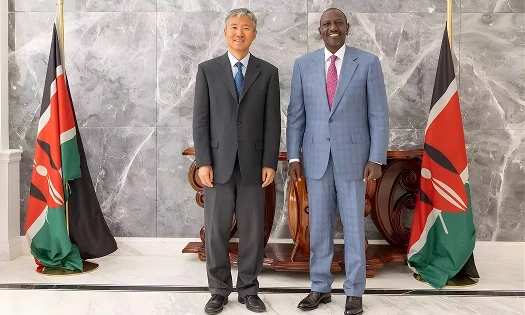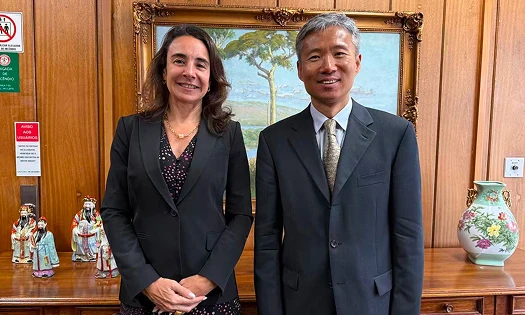Keys to building the bankability of projects using public-private partnerships (PPPs) that support sustainable infrastructure were highlighted during the fourth and final workshop of the Multilateral Cooperation Center for Development Finance’s (MCDF) second cohosted PPP “hot topics” series, on 5 June.
Following MCDF’s inaugural PPP hot topics series in 2024, the second series, held in 2025, was co-organized with Egypt’s Ministry of Finance, the African Development Bank (AfDB), Asian Development Bank (ADB), World Bank-hosted Public-Private Infrastructure Advisory Facility (PPIAF), and World Association of PPP Units and Professionals (WAPPP).
The fourth workshop in the 2025 PPP series featured presentations by PPP experts from governments, multilateral development banks, and partners which examined International Financial Institution and partner instruments to help make PPPs financially viable and bankable. They include instruments which are designed to reduce risks, enhance public funding contributions, and utilize climate funds.
To watch the workshop’s presentations, please click here
Following welcome remarks by Dr. Ede Ijjasz, the workshop’s moderator and strategic lead and Senior Advisor to MCDF’s CEO, Mr. Atter Hannoura, Advisor to the Minister for the PPP Center at the Egypt Finance Ministry, overviewed the challenges to achieving bankable PPP transactions. He underscored the need for comprehensive analyses and mitigation measures that address a wide range of financial risks. He also described the importance of starting bankability analyses and risk assessment and quantification during the project preparation phase, to identify appropriate mitigation tools and guarantees.
Ms. Rupinder Kaur Rai, PPP Specialist at the World Bank, presented on hybrid PPP solutions. She explained that when governments are unable to provide adequate public resources to achieve an optimum PPP structure that balances affordability and bankability while ensuring value for money, hybrid PPPs that mobilize full or partial concessional financing can be considered. She discussed common hybrid PPP models that rely on viability gap funding and shared examples from Senegal and Tunisia.
The role of climate funds in making PPP transactions bankable was explored by Mr. Jimmy Pannett of the World Bank, examining the Scaling Up Renewable Energy Program (SREP) of the Climate Investment Funds that he leads. Mr. Pannett said SERP’s successful financing of clean energy solution deployment in low-income countries is based on models that prove renewable energy viability. He went on to present SERP grant-support project examples that make PPP transactions viable.
Mr. Alan Narayadu, Senior Underwriter, Extractive and Energy Sector, Multilateral Investment Guarantee Agency (MIGA) at the World Bank, opened the second part of the workshop with a presentation on the role of guarantees in enhancing PPP bankability. He detailed how MIGA’s political risk, credit, and trade finance guarantees can protect private investors against breach of contract, expropriation, currency inconvertibility and transfer restrictions, and war and civil disturbance. He also discussed non-commercial risks covered by World Bank Group guarantees.
Mr. Andrew Yu Han, Senior Investment Specialist, Private Sector Facility at the Green Climate Fund (GCF), presented on its PPP support for climate action, including grants to de-risk climate-smart investments, equity to offset risks and other climate investment hurdles, guarantees to encourage high-impact climate investments, and concessional loans to support climate-compatible financial system development. He described two examples, including a renewable energy project in Egypt and a multi-country project with the International Finance Corporation (IFC) that supports climate adaptation in the water sector.
The workshop closed with insights on addressing PPP bankability challenges in Sub-Saharan Africa from Dr. Paolo Craviolatti, a Transaction Adviser at DAR consultancy and WAPPP council member. He noted a decrease in public PPP tendering, misunderstanding PPPs as a mere tool to close financing gaps, and cumbersome procedures under current PPP frameworks. Project-level solutions may include strengthening economic analyses of PPP candidate projects, project finance structure tests, and limiting capital expenditure by adjusting PPP design to suit local conditions and ensure desired functionality at lower costs, he concluded.
Contact
David Hendrickson
Senior Communications Officer
Mobile: +86 185 0114 6758
david.hendrickson@themcdf.org







